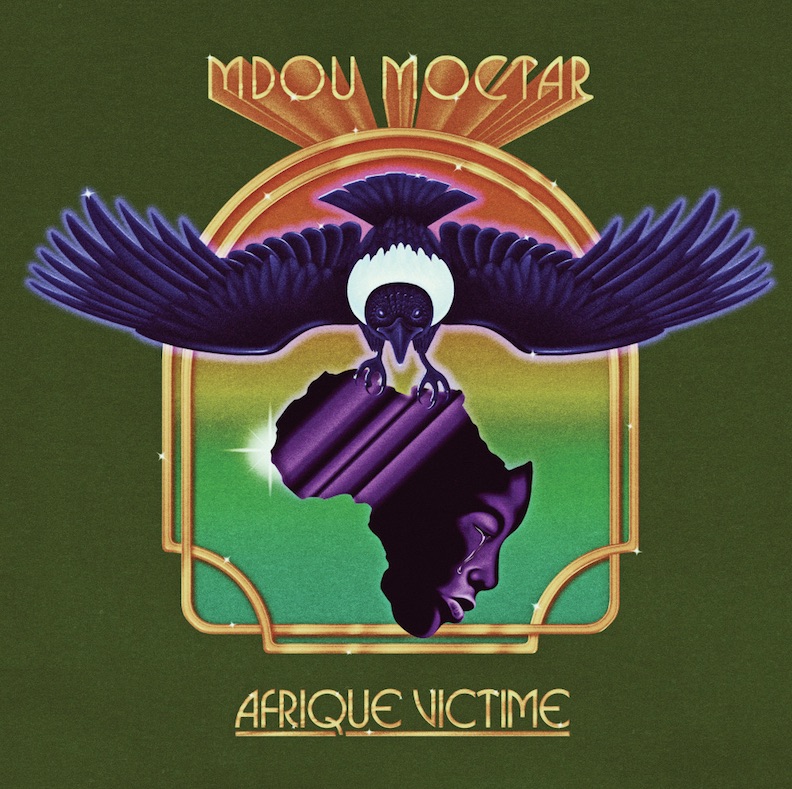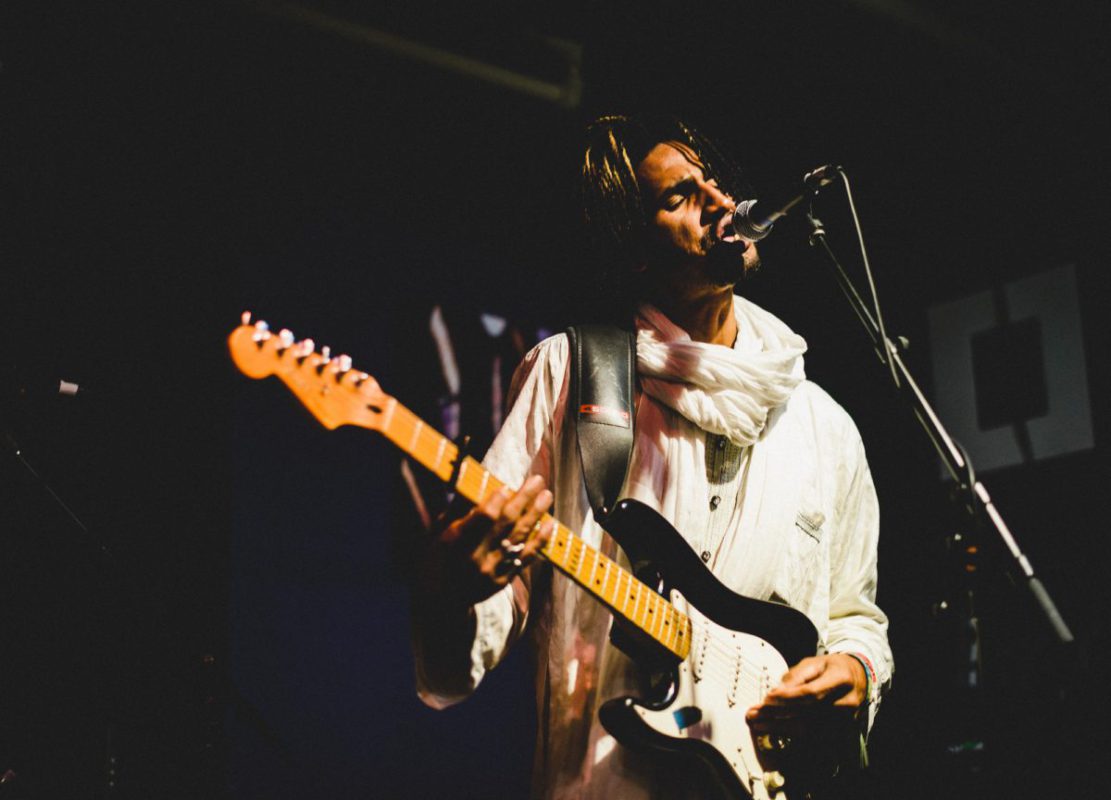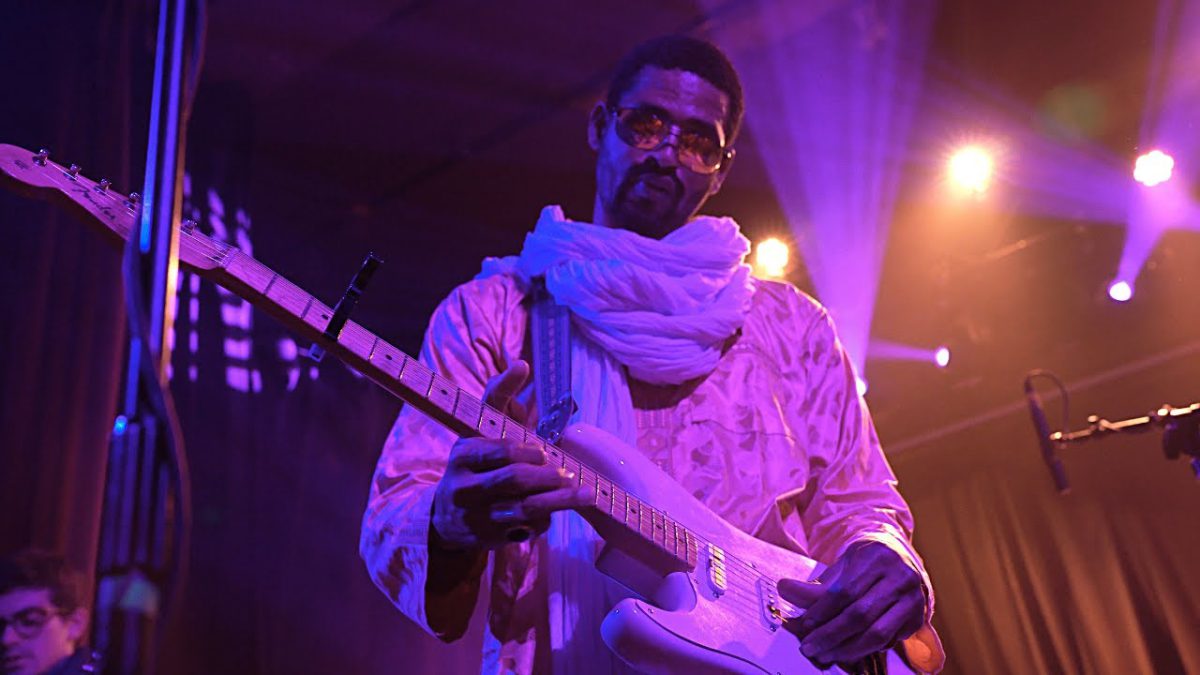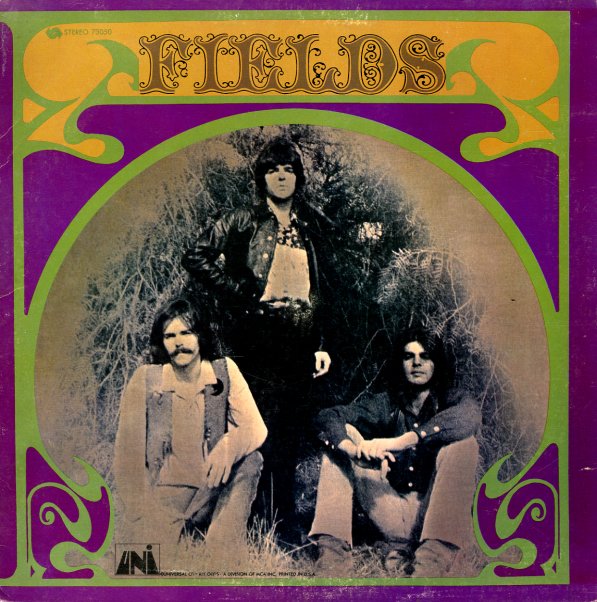Mdou Moctar: Afrique Victime
Mdou Moctar: Afrique Victime
Desert Blues, also known as “assouf” or “tishoumaren” is a style of rock music that combines electric blues with Middle Eastern and African sounds, with lyrics typically based on Tuareg poetry. One of the most famous practitioners of this guitar-driven music is Mdou Moctar, who has been called the “Hendrix of the Sahara” and continues to develop modern psychedelic rock with his latest album Afrique Victime. This is one of the best albums of pure psychedelic wonder to come along in years, and this modern guitar wizard gives us a portal into a thriving music scene of which many Western listeners have little to no knowledge.
Jimi Hendrix got started with a ukulele he found while cleaning some lady’s garage. He had to build his first guitar because his family was too poor to afford a real one. Moctar grew up in a Nigerian mining town with parents who hated electric music, so he also built his first guitar– out of bicycle strings! He became an underground sensation in the Sahel (a region of Africa between the Sahara and the savanna of Sudan) when his music was spread through cell-phone based music trading networks.
Mdou Moctar has been called the “Hendrix of the Sahara” and continues to develop modern psychedelic rock with his latest album Afrique Victime.
Moctar has been recording music since 2008 when he released Anar, which quickly became a classic of Tuareg Rock. Other studio releases from Moctar include Sousoume, Tamachek, & Ilana: The Creator, as well as the live albums Afelan and Blue Stage Sessions.
Lyrics in Desert Blues typically deal with war, rebellion, and the beauty of the Saharan Desert. The songs on Afrique Victime explore topics that are not often found in this style of music. Themes on Afrique Victime include jealousy, unrequited love, homesickness, longing, the birth of his son, the dangers of greed, and the lingering effects of the colonization of Moctar’s native Niger. Lyrics are in Tamasheq but Apple Music includes an English translation of the linear notes Moctar wrote that describe the themes of each song.
This is one of the best albums of pure psychedelic wonder to come along in years.
The album opens with a dreamy guitar riff that evokes the late, great Eddie Van Halen. The first song, “Chismiten”, features incantatory lyrics about the toxic influence that jealousy can have in a relationship. This is a jammy song featuring extended guitar solos by Moctar, but he’s not just noodling for the sake of noodling. Each moment has weight, importance, and musicality. He uses light phaser and reverb effects, but most of the psychedelic goodness comes purely through Moctar and his band’s unity and talent.
“Taliat” opens with another phase-heavy blues lick that grows into the song. The vocals on this track exude a sense of longing. This is another psychedelic rock track deeply rooted in Hendrix-style blues guitar. This fits the lyrical context about the pain of unrequited love.
Nikki Cells
“Ya Habibti” gives us a departure from Hendrix-style blues-rock. The song opens with one of Moctar’s signature epic riffs, but this time it’s raga. This carries over into the next song, “Tala Tannan”, the mellowest song on the album. This song is a hymn about the loneliness and physical separation from his wife that Moctar feels when he is on tour.
Moctar writes a deeply personal account of the lingering effects that imperialism has had on him and his country.
After a short “untitled” raga, Moctar shifts into a less psychedelic and more rock-based sound with “Asdikete Akal”. This song is about homesickness and Moctar’s nostalgia for his hometown. Like the first track, the vocals are incantatory, and Moctar experiments with shifting vocal dynamics to create a call and response effect in his lead vocal lines.
“Layla” is not a Clapton cover, but another one of Moctar’s tributes to his wife and family. Due to social norms in Niger, Moctar wasn’t allowed to be present when his wife gave birth to their son. Instead, he was on tour when he heard the news. His helpless desire to comfort his wife inspired this touching song that perfectly melds blues and raga rock.
The best song on this album is the title track, “Afrique Victime”. The album comes alive again after some mysterious opening riffs and a vocal phrase that sounds melodically like Warren Zevon’s “Veracruz”. But Zevon was an American sympathizing with victims of imperialism. Moctar writes a deeply personal account of the lingering effects that imperialism has had on him and his country. Niger has been “free” for over sixty years, but the legacy of French colonialism persists to this day. This is the heaviest song on the album, with the most passionate vocals. Any doubt that Moctar is a modern guitar god is struck down with his best solo yet.
The album ends on a calmer, more tranquil note. “Bismilahi Atagah” reflects on the problem that Niger and the rest of the world face as we look to the future. But rather than succumb to anger or despair, this song gives us a sense of hope. Despite the darkness, there’s still a light at the end of the tunnel.
Afrique Victime is a psychedelic experience that no music review can adequately describe. Do yourself a favor and listen to it now.
Gallery
Recent Articles

Loading...
Vinyl Relics: Would You Believe with Billy Nicholls
- Farmer John
A Tale of Crescendo ~ Chapter 9: The Clash; Chapter 10: The Reckoning
- Bill Kurzenberger





